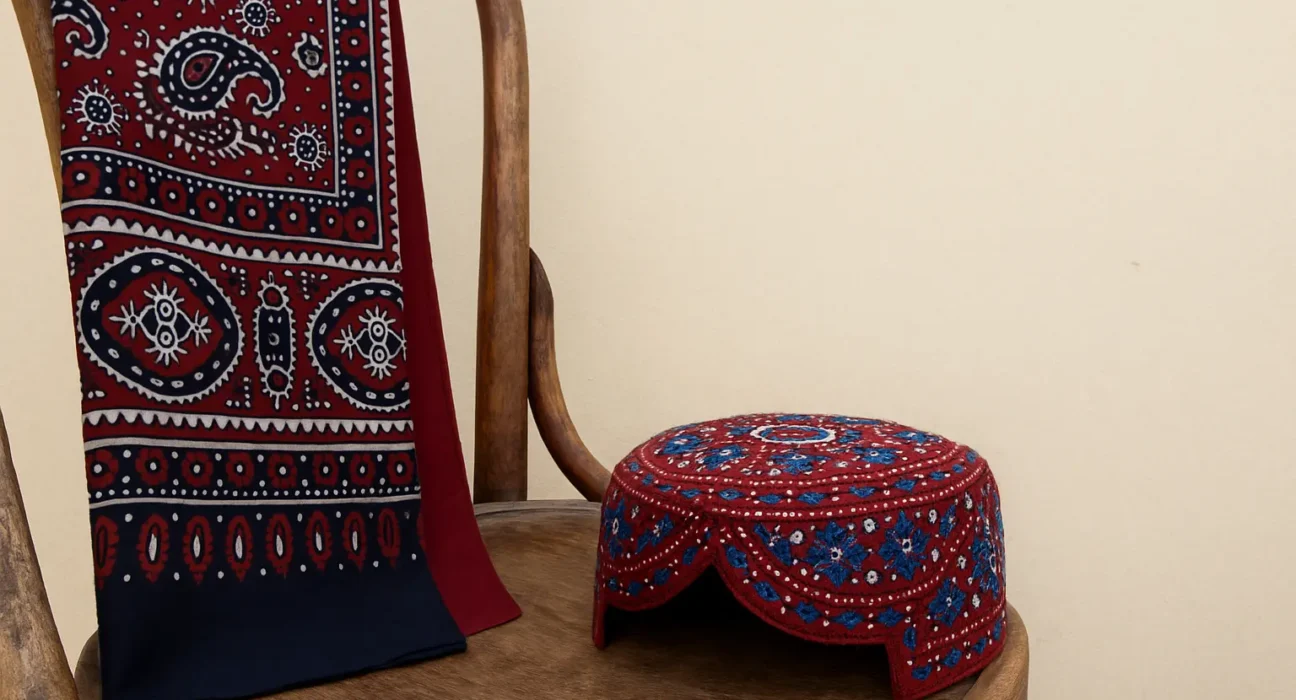Sindh Bans Ajrak and Sindhi Topi at Public Events

Officially, the Sindh Education Department has taken a step to ban the presentation of Ajrak, Sindhi topi (cap), and similar ceremony items at government events. All schools, offices, and education department events across the province are covered by the directive issued by the Karachi Government on May 27, 2025.
It means students can say goodbye to old, formal ceremonial practices in government schools. The primary objective of the department is to reduce formality and streamline official workflow for greater efficiency and speed.
No More Traditional Welcomes at Government Education Events
Officials have said that students are not permitted to greet or welcome guests at any public school event. Once a beloved part of the event, cultural gifts and special acts have now become unimportant and viewed as difficult to organize.
The department stated that its reason for this change was to eliminate redundant duties and ensure consistency in all official gatherings. The primary objectives of education should guide events rather than adhering to traditional protocols.
Learn More: Karachi Port Declares High Alert Ahead of Heavy Monsoon Rains
Cultural Concerns and Public Reaction
People throughout Sindh are responding to the decision with a variety of reactions. Some find that making official work easier is a beneficial change, but others consider it an insult to Sindh’s age-old traditions.
Ajrak and Sindhi topi, for the Sindhis, stand for years of pride and history. Opponents of the rule argue that hiding them for ceremonies could reduce international awareness of local traditions and cultural practices.
Different cultural groups, activists and some educators are using social media to encourage a balance that protects both transparent administration and valued culture.
Learn More: PM Shehbaz Praises Trump as “Man of Peace” for India-Pakistan Ceasefire Role
Immediate Implementation Across the Province
Schools and their leaders have been instructed to implement the new policy as soon as possible. The notice emphasizes that all rules must be followed, and none can be waived in the future.
It covers all schools and government offices supervised by the Sindh Education Department.
Bans any student welcoming activities or practices, as well as traditional items at ceremonies and presents to students.
• Lasts permanently until new notice is given, supported by the department.
Officials hope that educators and school administrators will cooperate, stating that this is necessary to improve the organization.
Impact on Schools, Teachers, and Students
Previously, students spent a lot of time practicing welcome speeches and gift-giving for visiting dignitaries. It was teachers and school staff who took care of planning these events, sometimes using up valuable time and resources.
Thanks to the new ban:
• Duties that get in the way of learning time are removed from students.
Teachers can focus on teaching instead of being preoccupied with arrangements and protocols.
• There is no need for schools to buy ceremonial items, making things more affordable.
Thanks to this change, schools can keep their activities simple and connected to learning rather than simply adding pageantry.
Cultural Preservation Without Formalities?
The state of Sindh has emphasized that the policy enhances the system, not the culture, and could end unfair advantages. While officials say Ajrak and Sindhi topi are seen as cultural gems, their use in official events should be reconsidered.
We still invite people to participate in cultural days and festivals and incorporate Sindhi traditions into school materials. Department officials want to promote valuing different cultures at school rather than through gift-giving during ceremonial occasions.
What Comes Next?
The goal is for this policy to help drive broader changes in public education that aim to increase the potential involvement of public education staff and reduce unnecessary complications in management. In addition, it encourages similar steps in other government sectors.
Still, how well this decision succeeds will rely primarily upon:
• How the public responds and how culture accepts these ideas.
• How well the government handles the policy no matter where in the country the issue occurs.
• If different approaches to celebrating culture are spread and used well.
Conclusion
The decision to restrict the wearing of Ajrak and Sindhi topis, as well as exchanging gifts at official events, helps the Sindh Education Department bring more formality to school and office events. Although the decision has divided opinion on cultural representation, it aligns with goals for greater efficiency, simplicity, and effective teaching.
Many are still debating how much of earlier practices can be retained while transitioning to meet this standard. In the end, institutions must seek updated ways to honor traditions while still attending to the vital work of governance.









